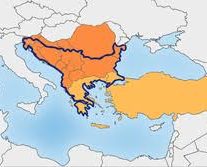
Trieste summit: youth connections to accelerate Western Balkans path to EU
Employment and Social Affairs 17 July 2017Western Balkans integration in the EU has recently faced the threat of the “enlargment fatigue”. But 12th of July Trieste Summit, organized by the italian presidency of the Berlin Process, clearly changed this perspective and the sentence pronounced at the beginning of the mandate by European Commission’s President, Jean Claude Juncker, seems now fareaway. “Our citizens need a pause from enlargement so we can consolidate what has been achieved among the twenty-eight. This is why, under my Presidency of the Commission, ongoing negotiations will of course continue, and notably the Western Balkans will need to keep a European perspective, but no further enlargement will take place over the five years”, said Juncker in 2014 presenting the Commission Work to the European Parliament.
Now the EU stance is more devoted not to leave empty space in the Balkans and Trieste summit showed a relaunch of the cooperation between the EU and the Western Balkans. Participants unanimously reaffirmed their unequivocal support for the European perspective of the region. “The European integration of the Balkans is our security and economic interests” because these are countries that are part of the Europe, clearly said the High Representative of the EU foreign policy, Federica Mogherini, speaking to reporters at the end of the Summit in Trieste. The prospect is clearly related to accession, even if this will happen “when the right time comes”.
Off course the path for integration of the Balkans will be long and tough, but it definitively has to be an open and active perspective for the region. And from this point of view many are the platform of cooperation offered by the EU, namely through the Berlin process: free trade, infrastructure development, renewable energy and improved condition for small and medium enterprise. Furthermore there is a need to strengthen rule of law, fighting corruption and bureaucracy. The key issue would be the development of infrastructural projects which seek to connect Balkan networks to the European corridors.
And connection in a wider sense range from a deeper focus on regional economic integration to the youth training programmes, now that the Erasmus programme is celebrating its 30 year anniversary. So another key aspect is related to youngest people and to connection among those country. From this point of view in 2016 the EU launched the establishment of the Regional Youth Cooperation Office (RYCO) of the Western Balkans, to promote the spirit of reconciliation and cooperation between the youth in the region” through exchange. RYCO – a tangible result of the joint efforts since the Berlin Summit – has now started its work and presented its first work programme to foster cooperation among the youth of the region. RYCO office has been set in Tirana, and one key aim is to promote the mobility within the WB6 region and with the EU28. In this sense a decisive step toward the EU integration would be reached by strengthening connection, people mobility and working opportunity in the region. This will help both the reconciliation process in the region and the creation of concrete jobs opportunity for young people of the region.
Furthermore also a dynamic business environment is essential for the diversification and modernization of the economy and the creation of job opportunities and growth. As report by the finale declaration, in Trieste participant agreed to work towards a more dynamic investment environment in the Western Balkans building on entrepreneurship within the region, using regional strengths, including young people and scientific expertise. The European Commission announced additional financing of €48 million, which will be channeled through the Western Balkan Enterprise Development and Innovation Facility, to boost entrepreneurial capacity and new financing opportunities to the companies in the region. Only if the economic and social support to the Balkans goes hand in hand with the political and institutional cooperation’s agenda, the enlargment could be a real success policy of the EU.


